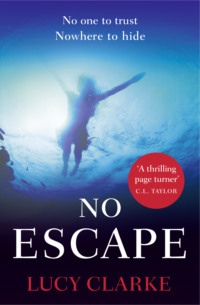No Escape: The most addictive, gripping thriller with a shocking twist

Добавить В библиотекуАвторизуйтесь, чтобы добавить
Добавить отзывДобавить цитату
No Escape: The most addictive, gripping thriller with a shocking twist
Вы ознакомились с фрагментом книги.
Для бесплатного чтения открыта только часть текста.
Приобретайте полный текст книги у нашего партнера:
Всего 10 форматов
Авторизация